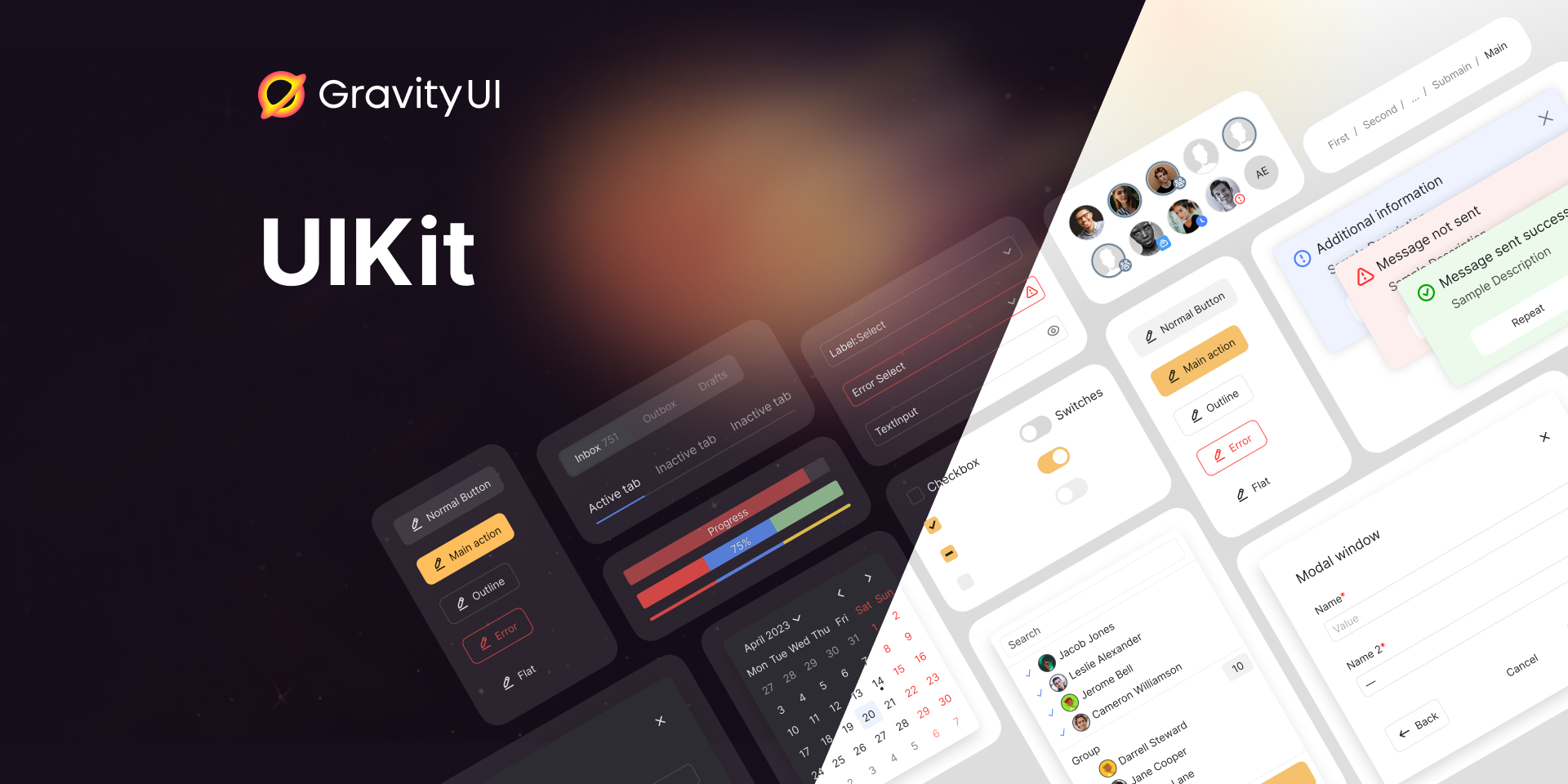A set of flexible, highly practical, and efficient React components for creating rich web applications.
npm install --save-dev @gravity-ui/uikitimport {Button} from '@gravity-ui/uikit'; const SubmitButton = <Button view="action" size="l" />;UIKit comes with base styling and theme. In order to everything look nice include this at the top of your entry file:
// index.js import '@gravity-ui/uikit/styles/fonts.css'; import '@gravity-ui/uikit/styles/styles.css'; // ...UIKit supports different themes: light, dark and their contrast variants. Your app must be rendered inside ThemeProvider:
import {createRoot} from 'react-dom/client'; import {ThemeProvider} from '@gravity-ui/uikit'; const root = createRoot(document.getElementById('root')); root.render( <ThemeProvider theme="light"> <App /> </ThemeProvider>, );It is possible to generate initial root CSS-classes during SSR to avoid theme flashing:
import {getRootClassName} from '@gravity-ui/uikit/server'; const theme = 'dark'; const rootClassName = getRootClassName({theme}); const html = ` <html> <body> <div id="root" class="${rootClassName}"></div> </body> </html> `;Also, there is a SCSS mixins file with useful helpers to use in your app.
Some components contain text tokens (words and phrases). They come in two languages: en (default) and ru. To set the language use configure function:
// index.js import {configure} from '@gravity-ui/uikit'; configure({ lang: 'ru', });To start the development server with storybook run the following:
git clone git@github.com:gravity-ui/uikit.git cd uikit npm ci npm run start



